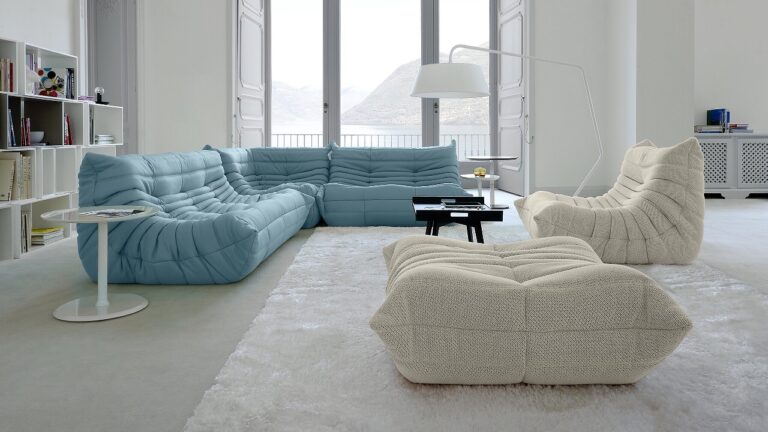14 Lawn Alternatives to Grass
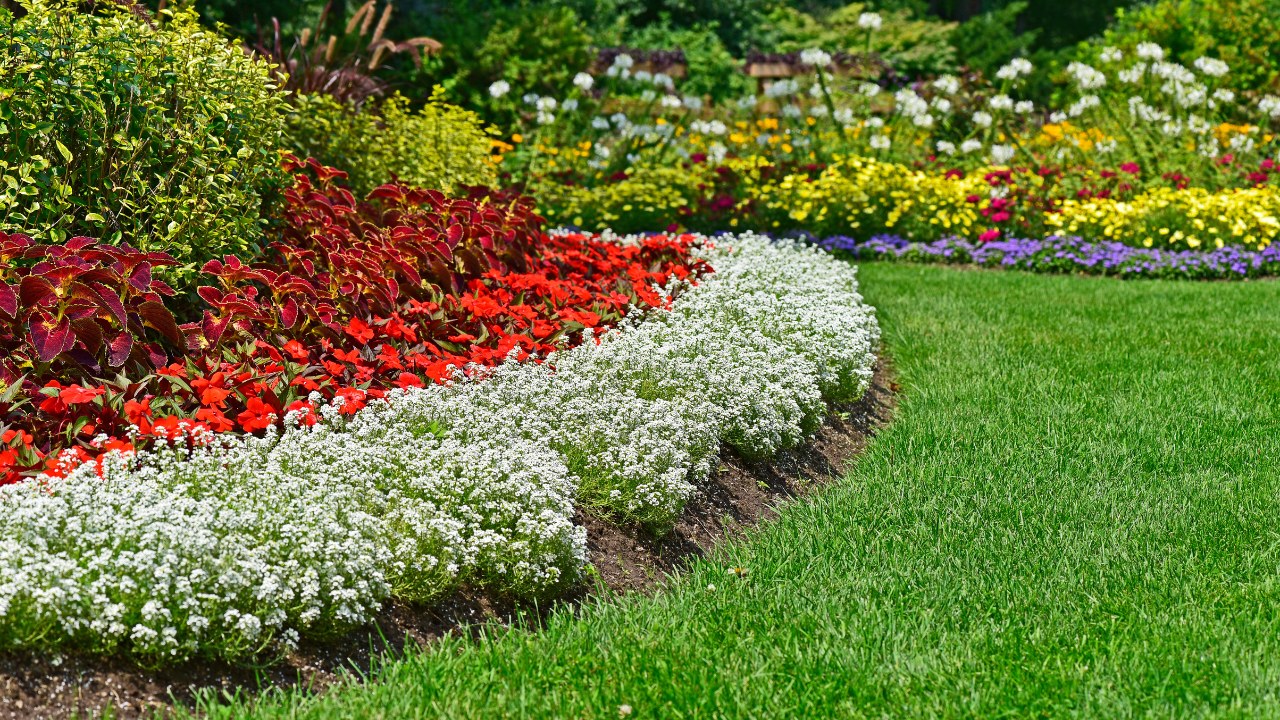
It’s conventional to have grass in your lawn area, but it’s certainly not compulsory. While it provides a classic look, many consider grass to be high maintenance with a need for constant mowing and attention.
For those who lack the time or the inclination to look after their grass, there are lots of alternatives. Many will also help to encourage the balance between beauty and the aim to provide a home for nature.
The suggestions here offer a wide mix of ideas, each of which could offer the ideal alternative to traditional grass.
Decking
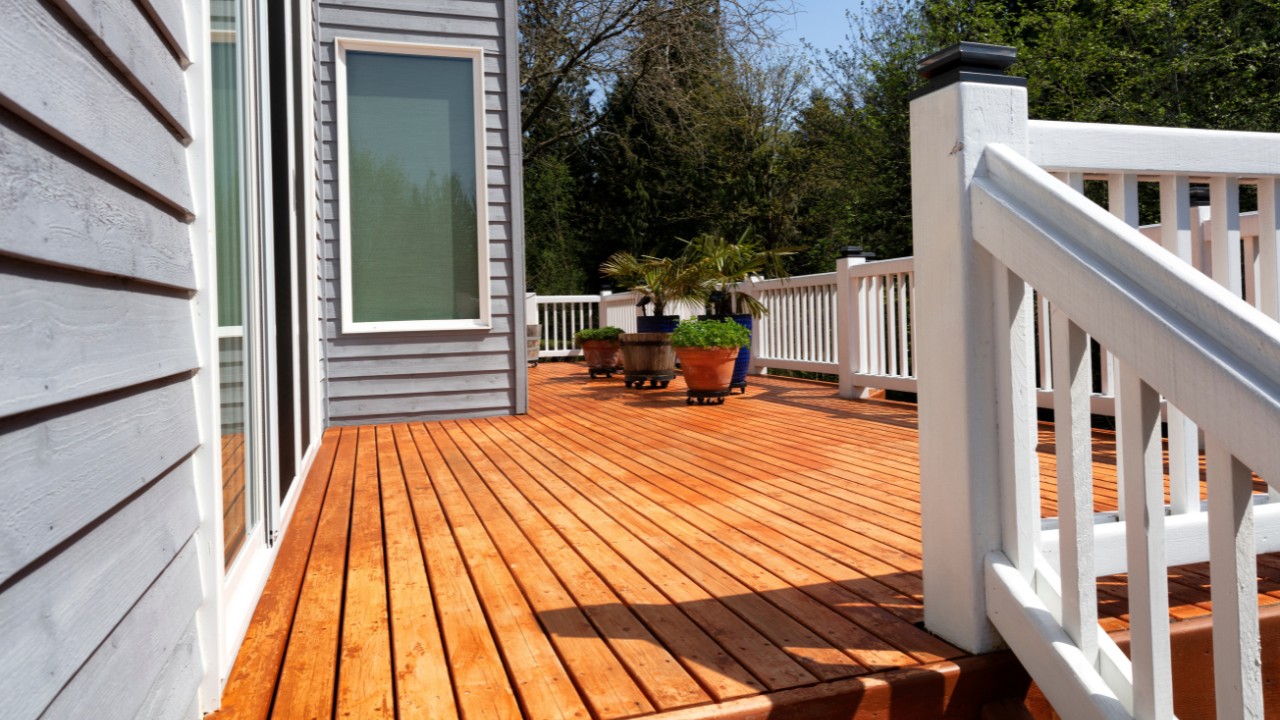
It’s worth noting that many of the suggestions on this list can be combined. For example, you don’t have to use decking across your entire lawn, but you could construct an area where you relax and dine outside.
Wooden decking does require maintenance to keep it weatherproof and looking its best, but the attractive design makes it a popular choice. It’s versatile too, with so many natural colors and styles to select from.
Wildflowers
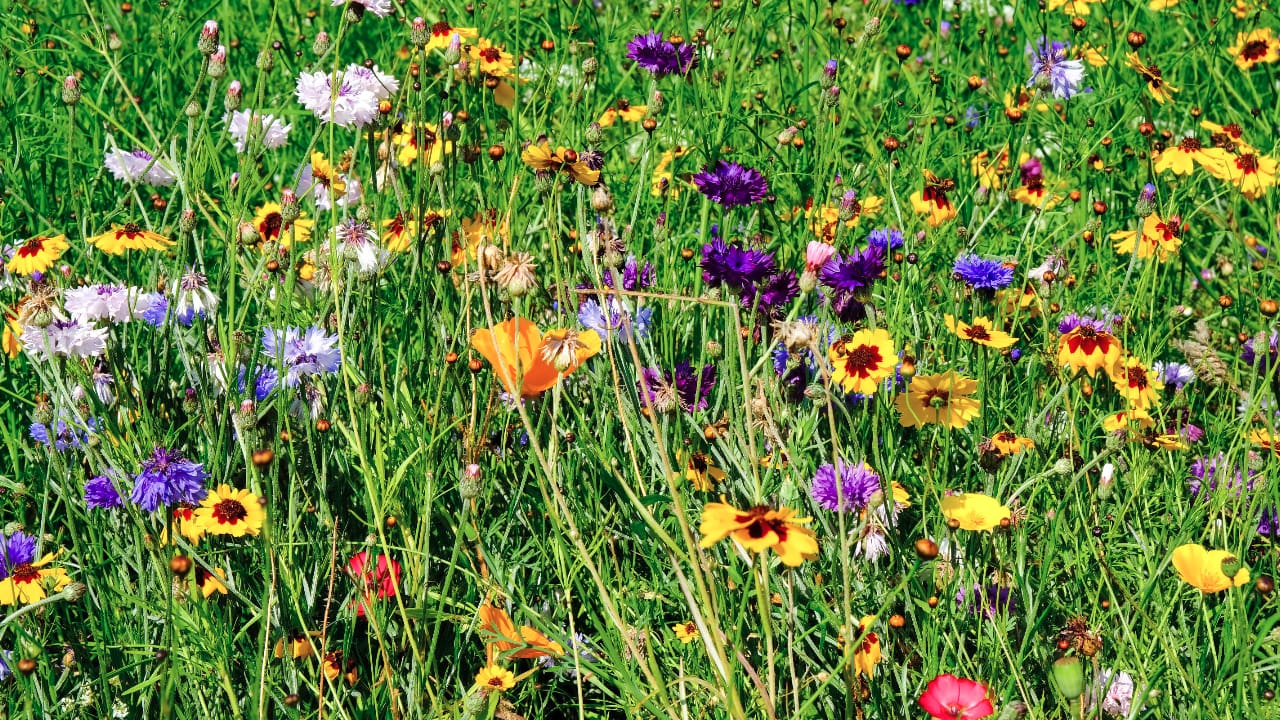
If you’re a nature lover who is reluctant to let go of your lawn, why not consider leaving the area for wildflowers to flourish? They are easy to grow: Simply prepare the soil, water it, and cast the seeds on top.
Within a few weeks, you’ll have a stunning mix of beautiful colors, and the local wildlife will thank you too. Wildflowers are a big draw for insects, especially bees and butterflies.
Gravel
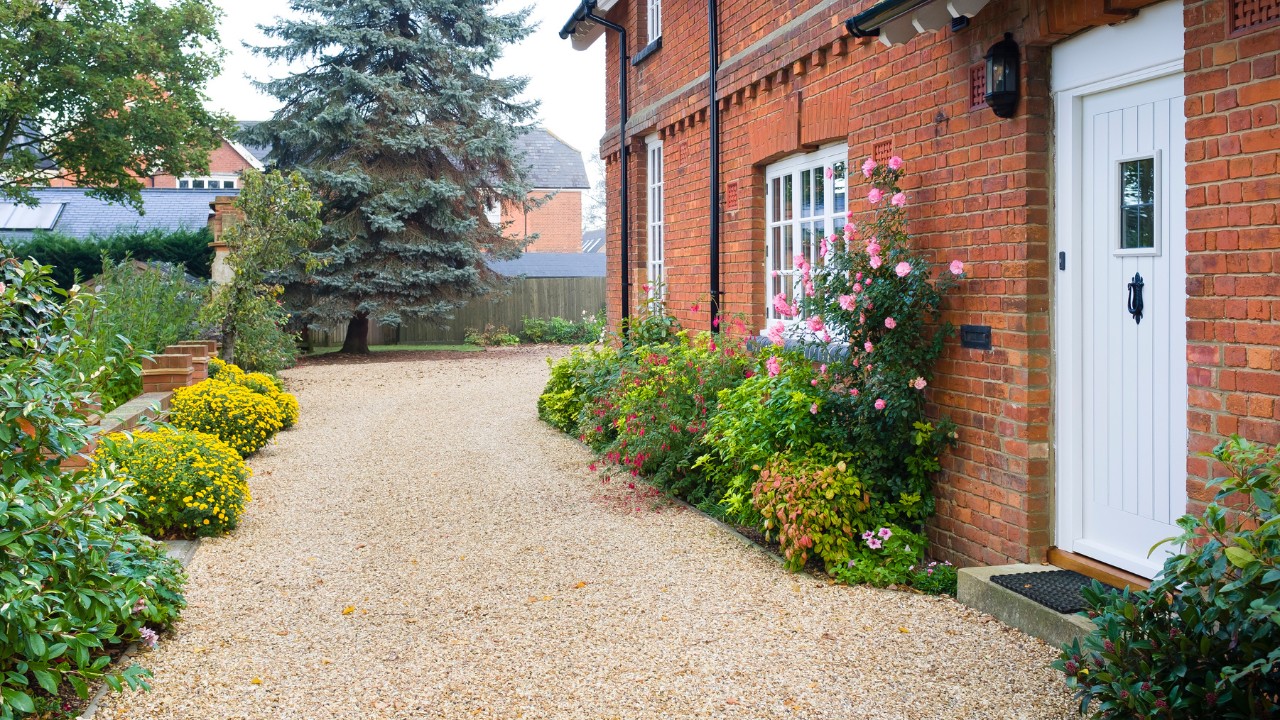
Compared to decking or other stones, gravel is a relatively cheap lawn alternative. It can be purchased in many different styles and is another way to retain attractiveness with a natural look.
Gravel isn’t great for attracting pollinators, so you may want to add containers and plants along the way. Another benefit is the fact that it can be a good addition to your home security. No intruder can sneak up on your property without alerting attention because of that crunchy gravel!
Mulch
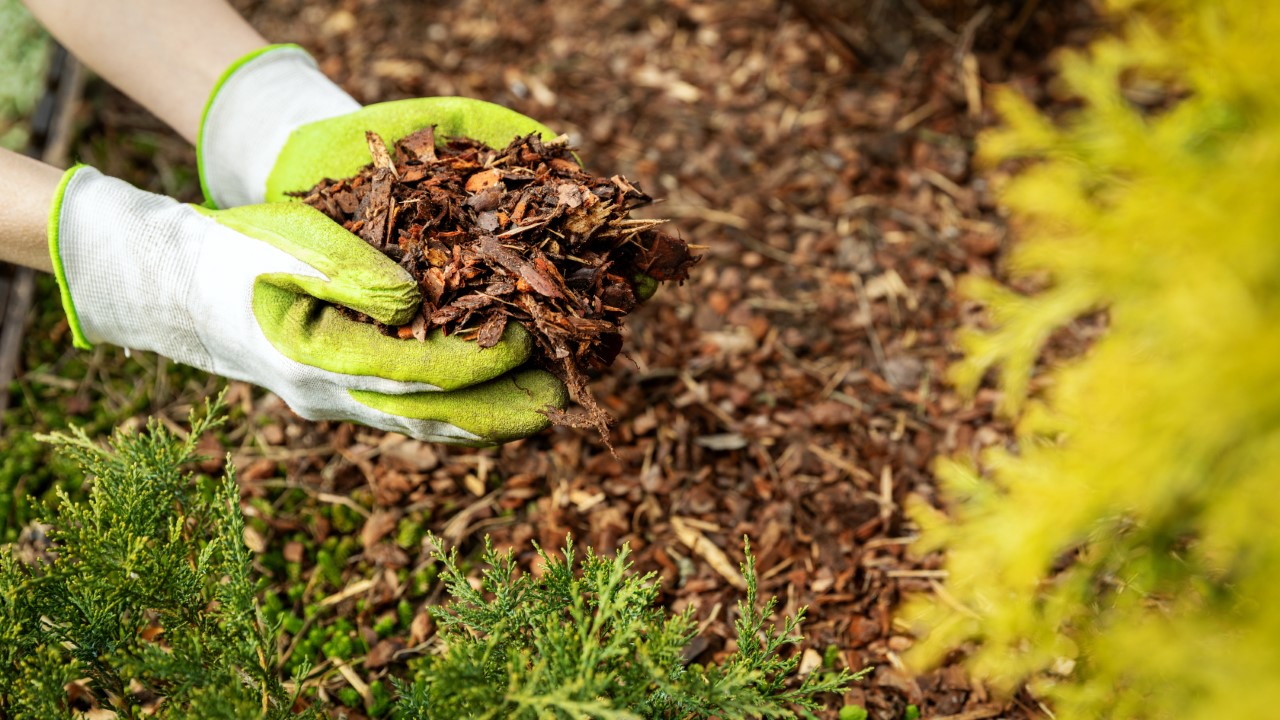
Mulch is a term that covers many different materials. It most frequently features bark or woodchip, but fallen fall leaves can also come into this category.
It’s a useful tool for gardeners, as it helps to retain warmth and moisture in the soil while repelling frost. It’s an option as a grass replacement too, but if you are going to use mulch in your lawn areas, go for the most attractive bark or woodchip products.
Herb Garden
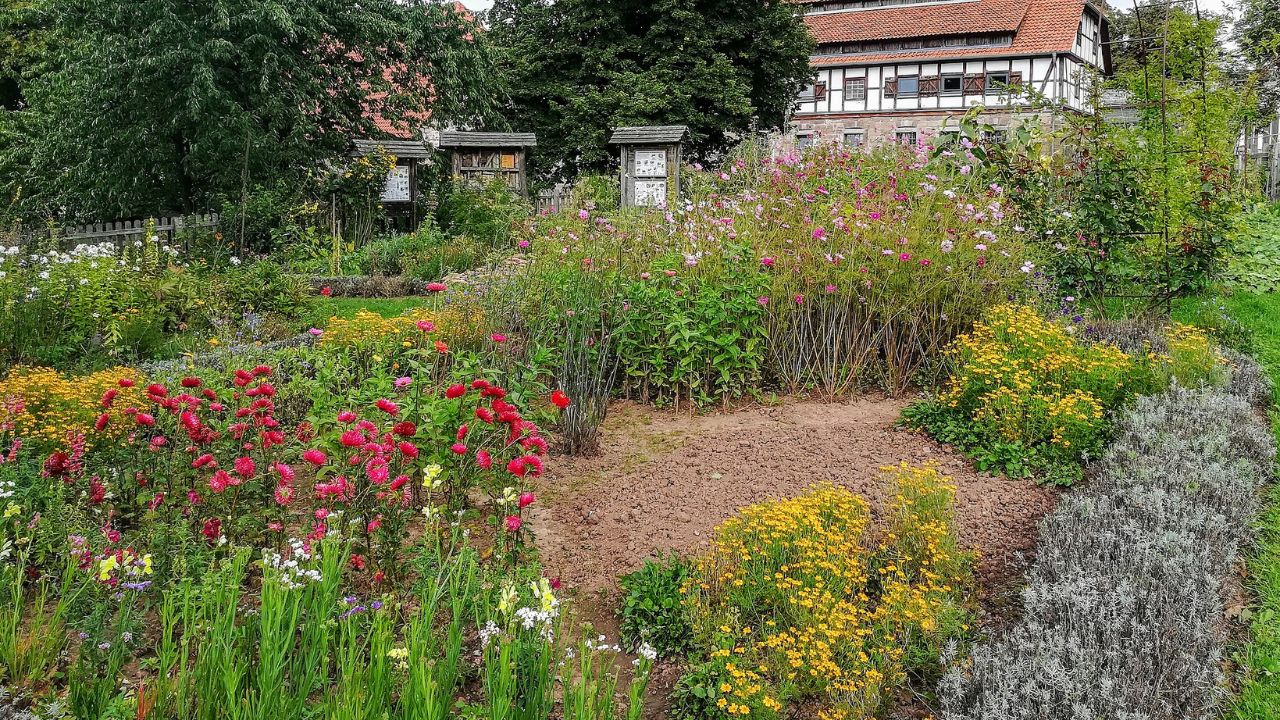
The most industrious gardeners like to give their lawn area over to produce that they can use in the kitchen. Growing herbs is also a great idea if you’re adopting a frugal lifestyle as many can be expensive to buy fresh at the store.
You’ll need some good quality soil beneath them, and you can also consider some mulch to help retain moisture and warmth. Herbs can look attractive so you can enjoy some beauty along with their practical benefits.
Pots and Paving
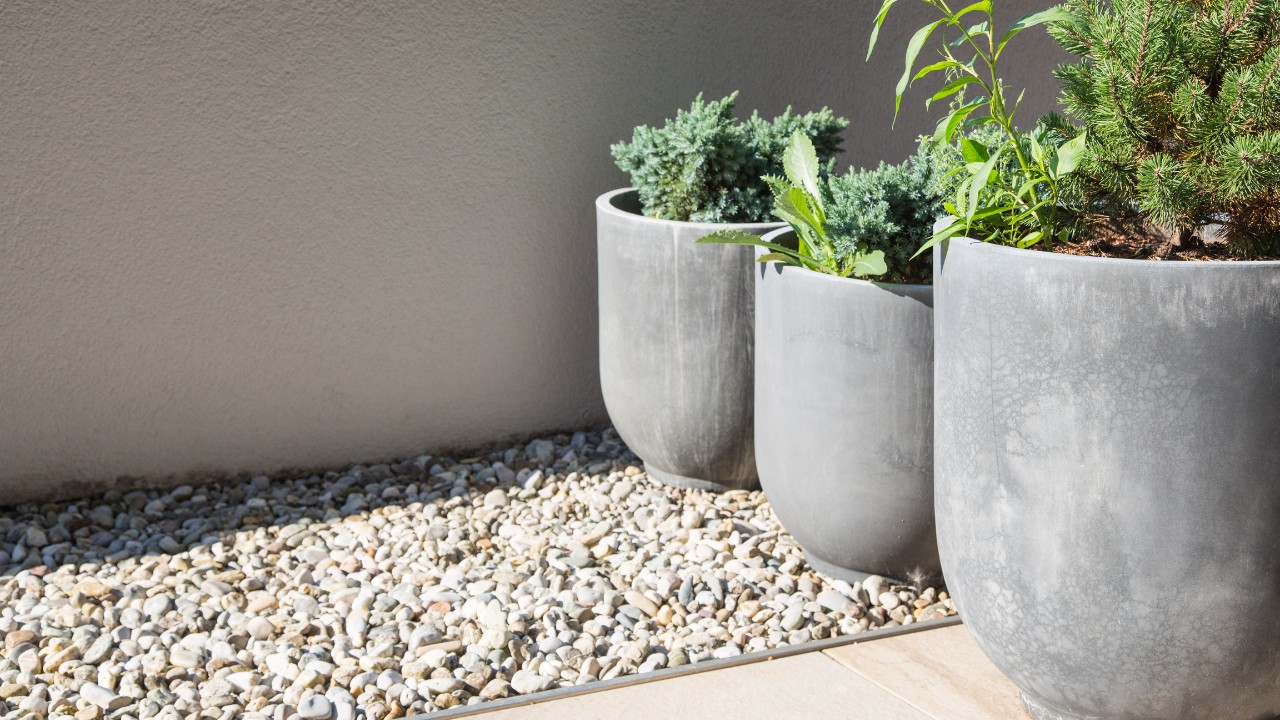
Small gardens that receive extensive sunlight may be the worst option for grass. The warmth means you’ll need more water to stop the lawn from dying, while that excess moisture leads to more mowing.
A paved yard with potted plants is a good solution. You’ll still need to water regularly, but the mowing element is removed. A hotter yard also allows you to experiment with more tropical plants such as bananas or figs.
Clover
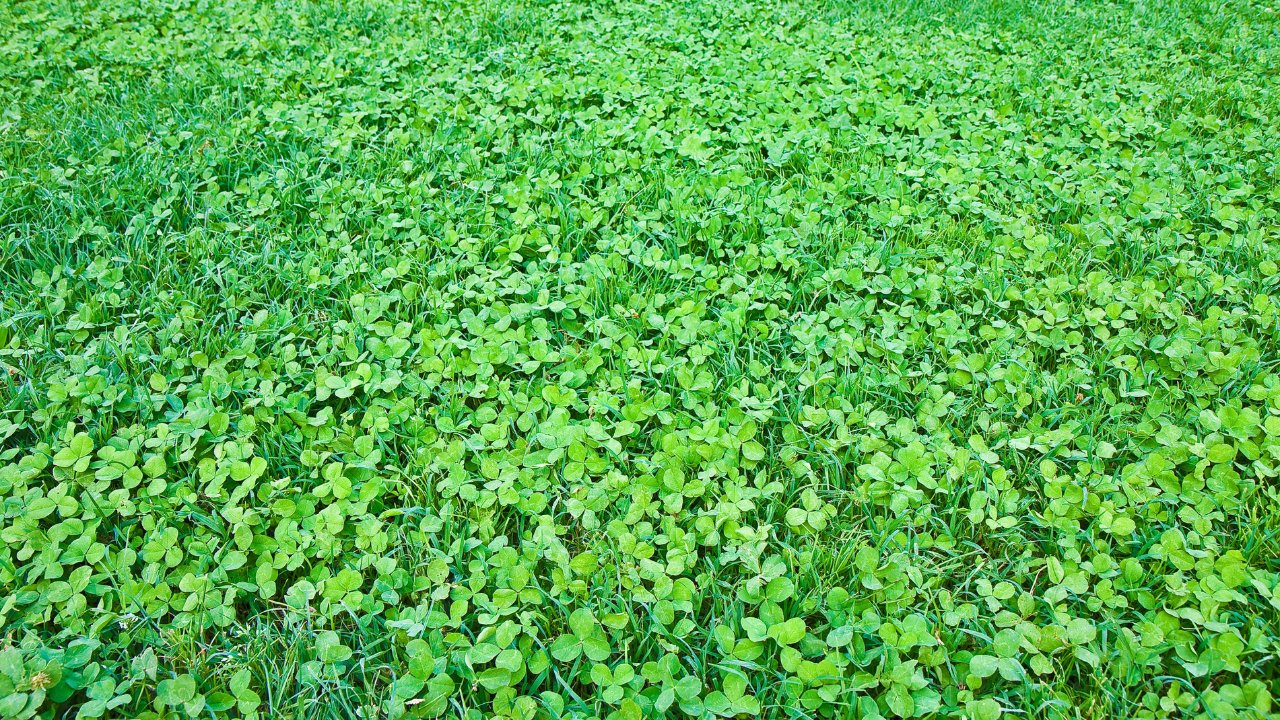
Clover does grow, but it remains relatively short, so you won’t need to rely on the mower. You may already notice its leaves poking through your existing grass. It’s a low-maintenance option, and there are several varieties available including white and red.
Red clover grows to a greater height, while both varieties attract bees when their flowers are in full bloom.
Patio Stones
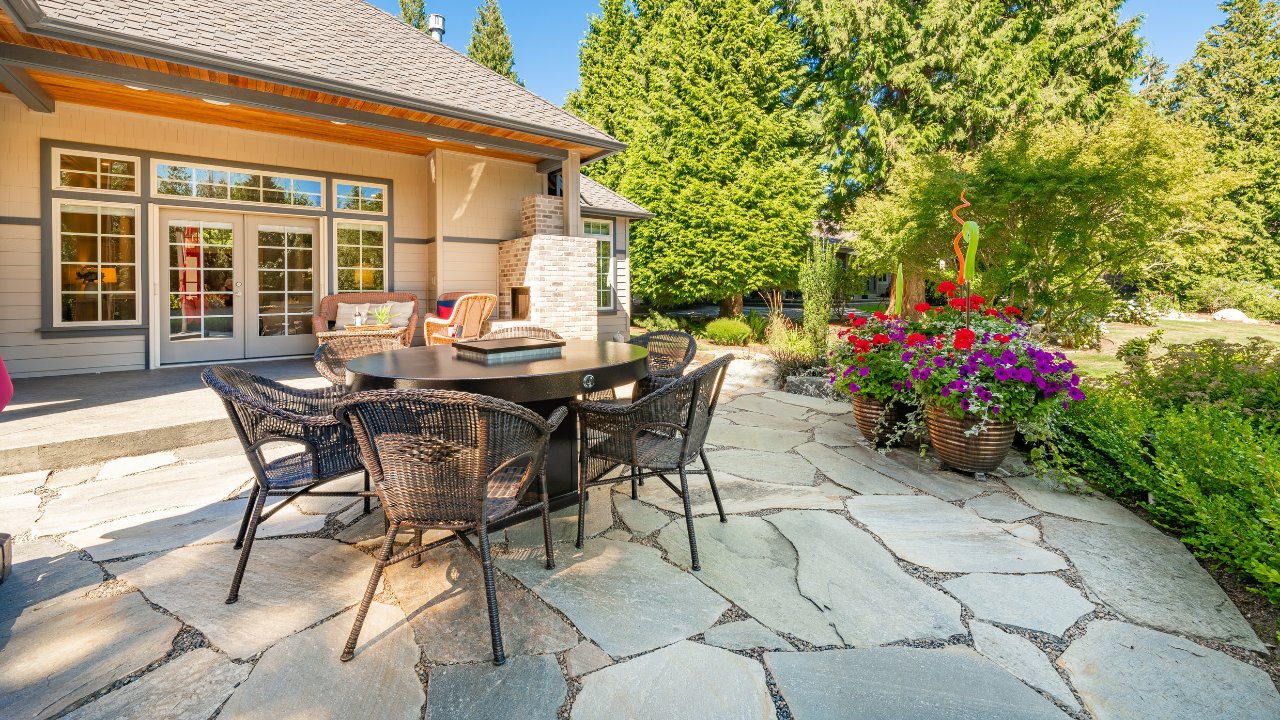
Similarly to decking, you can use patio stone as minimally or extensively as you wish. Many households create a smaller area for dining and soaking up the sun, but you can extend further and replace your lawn.
A pathway in between flower beds is another way to use regular stone shapes. These paths are practical and make an attractive addition to your yard space while cutting down on lawn maintenance.
Rock Garden
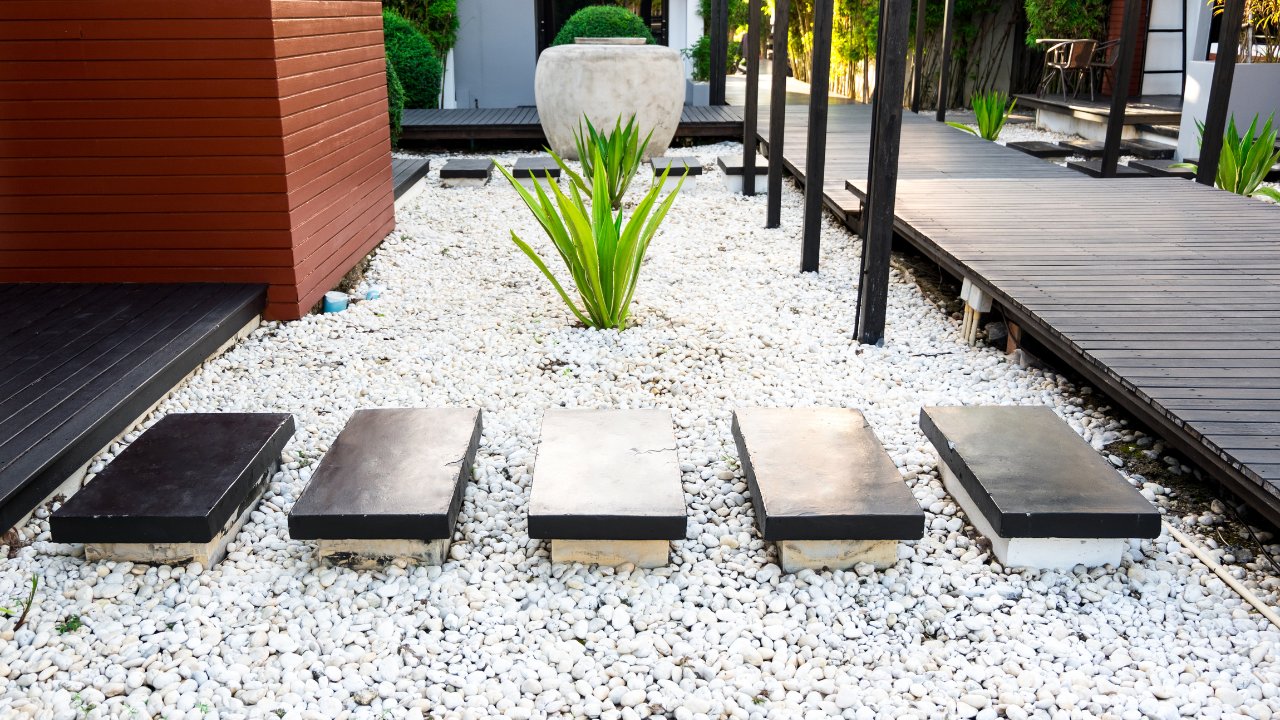
A rock garden is a great option, as it’s open to so many different designs. Think of a small rockery, with a water feature, and expand that into your entire lawn area.
Rocks and stones are the primary features, but they are interspersed with colorful plants that thrive in this particular environment. Alpine plants and succulents should enjoy the rock garden, and you won’t find these in many yards across the country.
Wild Pond
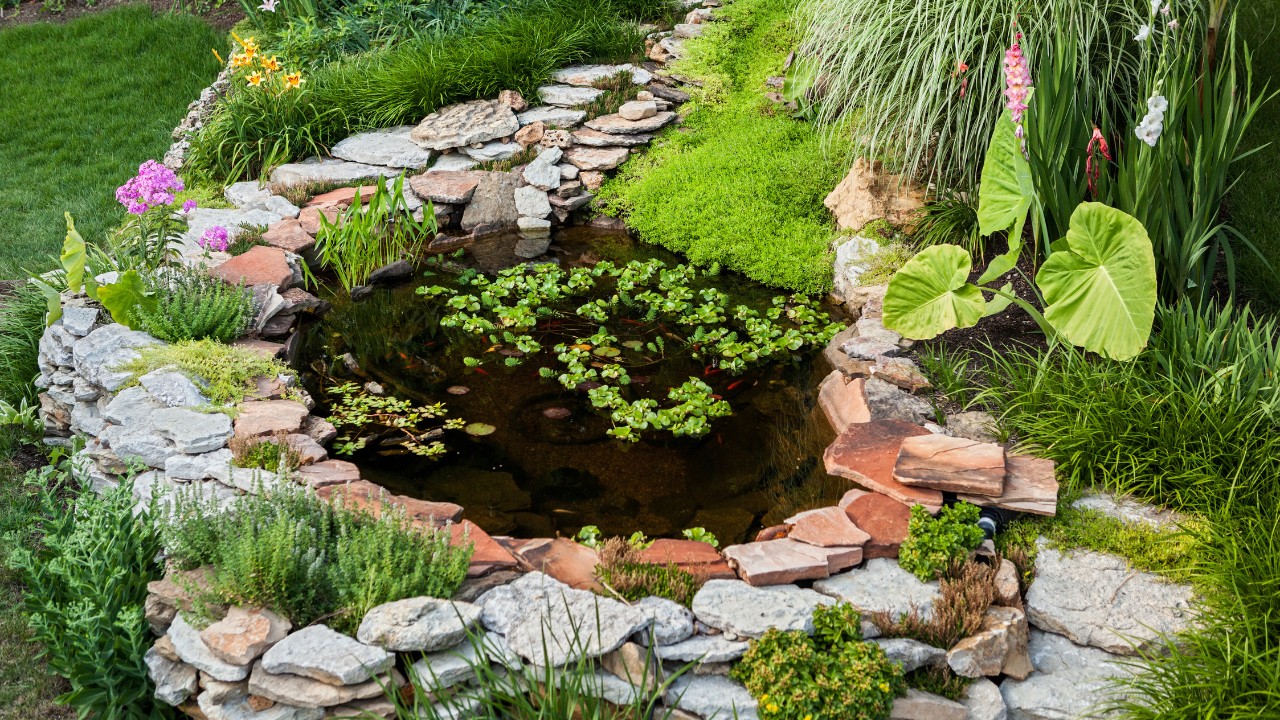
If you have a small lawn area but still need an alternative to grass, a pond could be the answer. You can import fish, and the presence of koi carp would definitely be a talking point.
If you’re keen on attracting local wildlife, why not construct a wild pond? Indigenous amphibians, along with insects and others will actively seek out a home that’s been especially designed to meet their needs.
Thyme
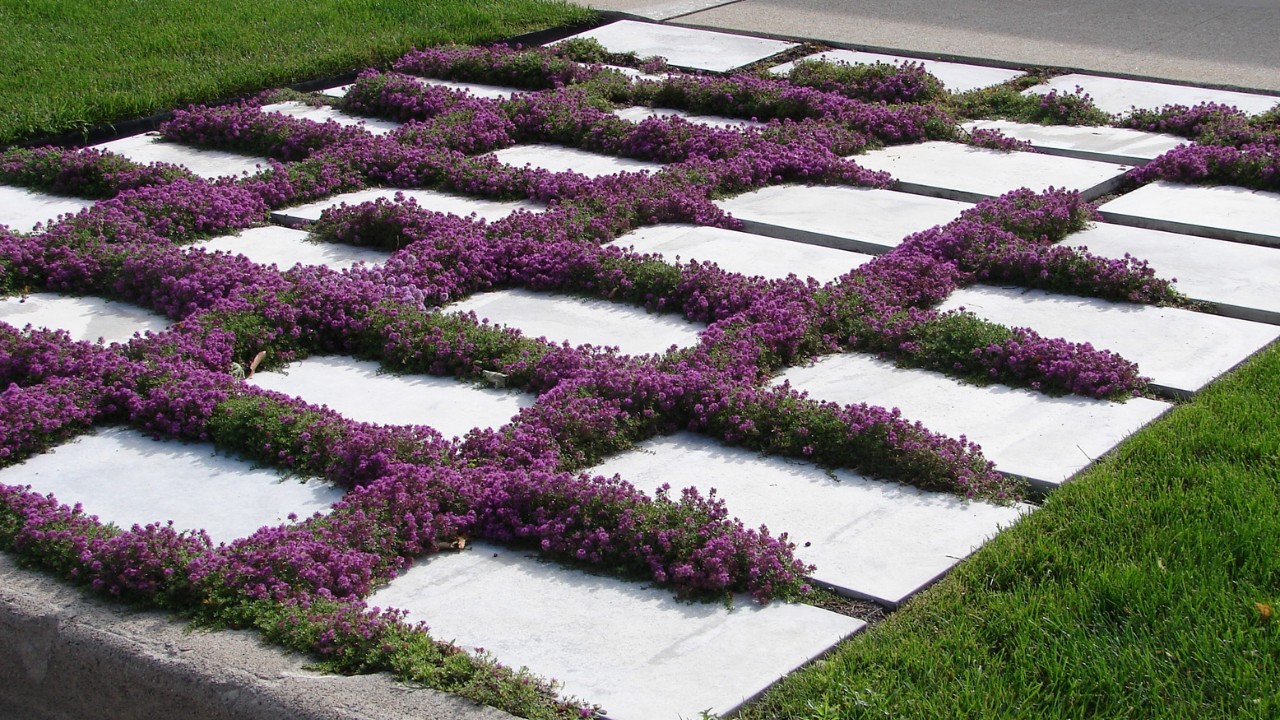
Creeping Thyme is a good alternative to clover. It only grows to a few inches in height, and if you adopt a no-mow policy, you’ll be rewarded with stunning flowers across your lawn.
It’s a durable plant, ideal for heavy traffic areas, and as a perennial, it will come back every year. For those keen to provide a haven for bees, the fragrant flowers should attract these vital pollinators into your garden.
Moss
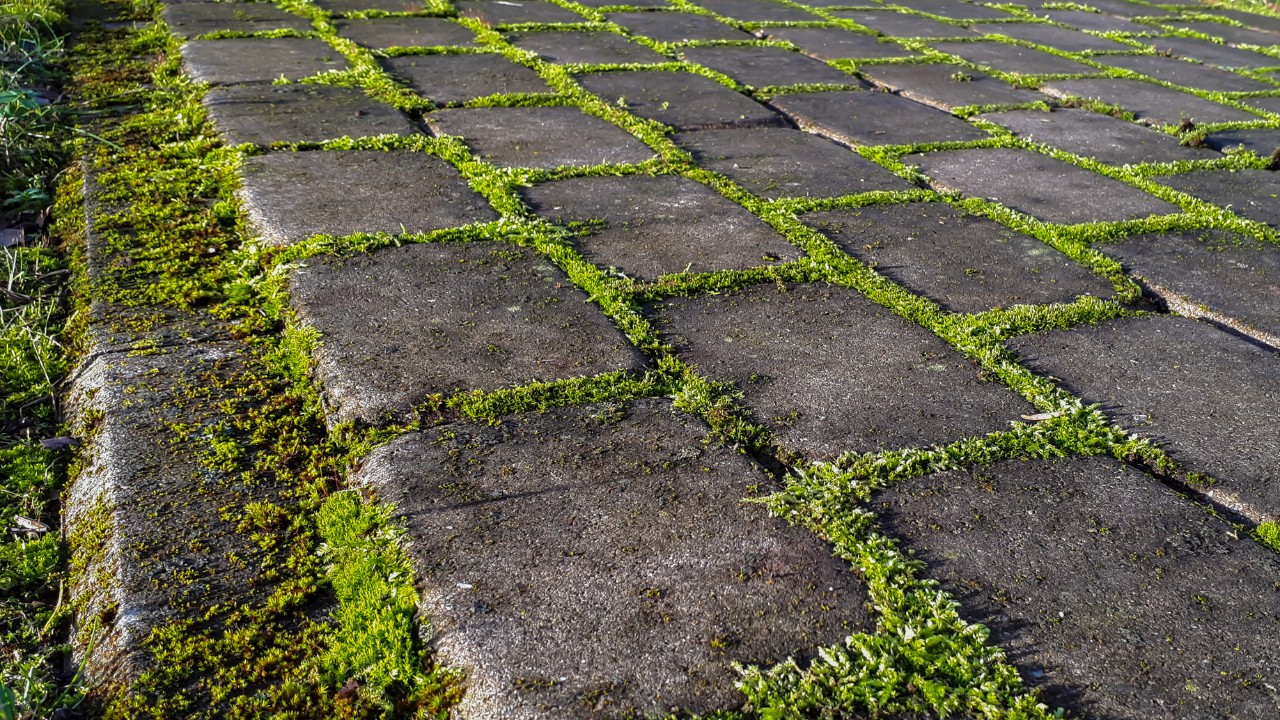
Many amateur gardeners may think of moss in negative terms. When they see it appear on a grass lawn, they may take steps to kill it off. In fact, it can be an attractive addition to your lawn area.
Moss can stay green all year long, as it retains moisture, even in dry spells. It doesn’t grow high, so it requires no mowing and little maintenance to keep it looking its best.
Synthetic Grass
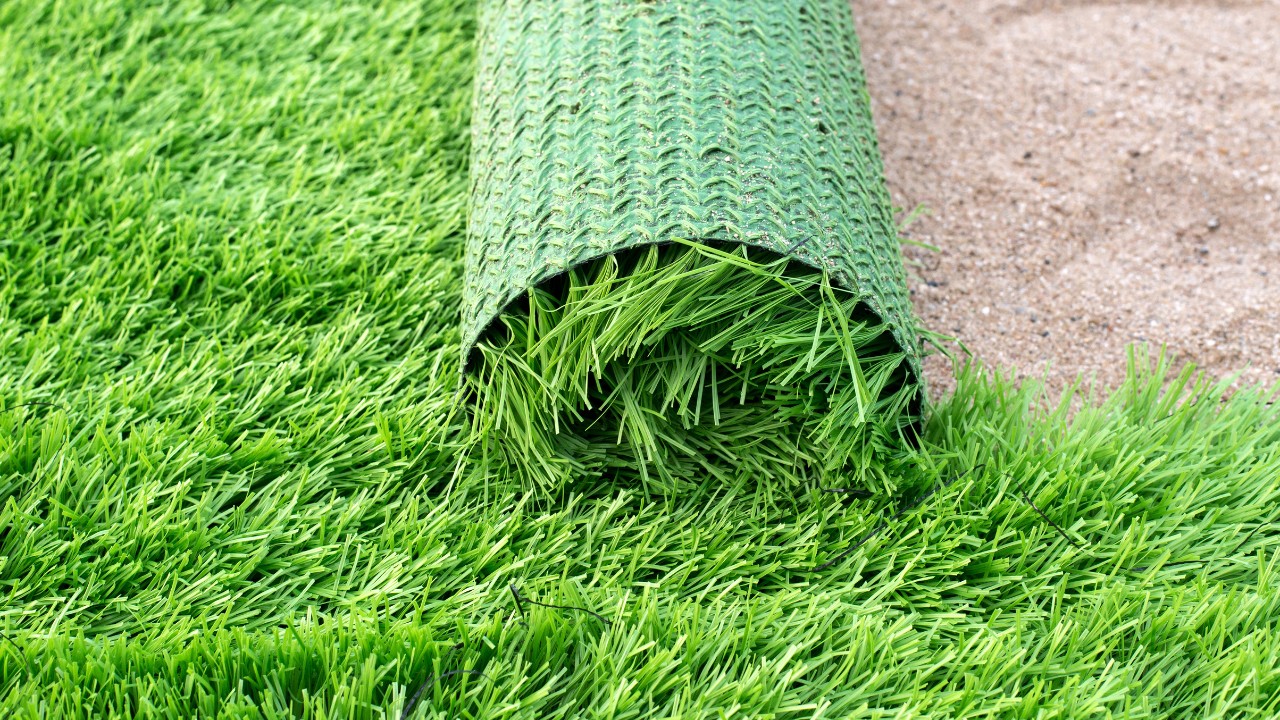
Over here in the UK, many new build homes are being constructed using synthetic grass in the lawn areas. It seems to be particularly popular with young families who want to encourage their children to play, without ruining the look of the garden.
Astroturf is a synthetic material and it’s certainly a low-maintenance option. The bad news is that this is the worst suggestion in terms of a natural balance with no attractions here for bugs or pollinators.
Native Grass
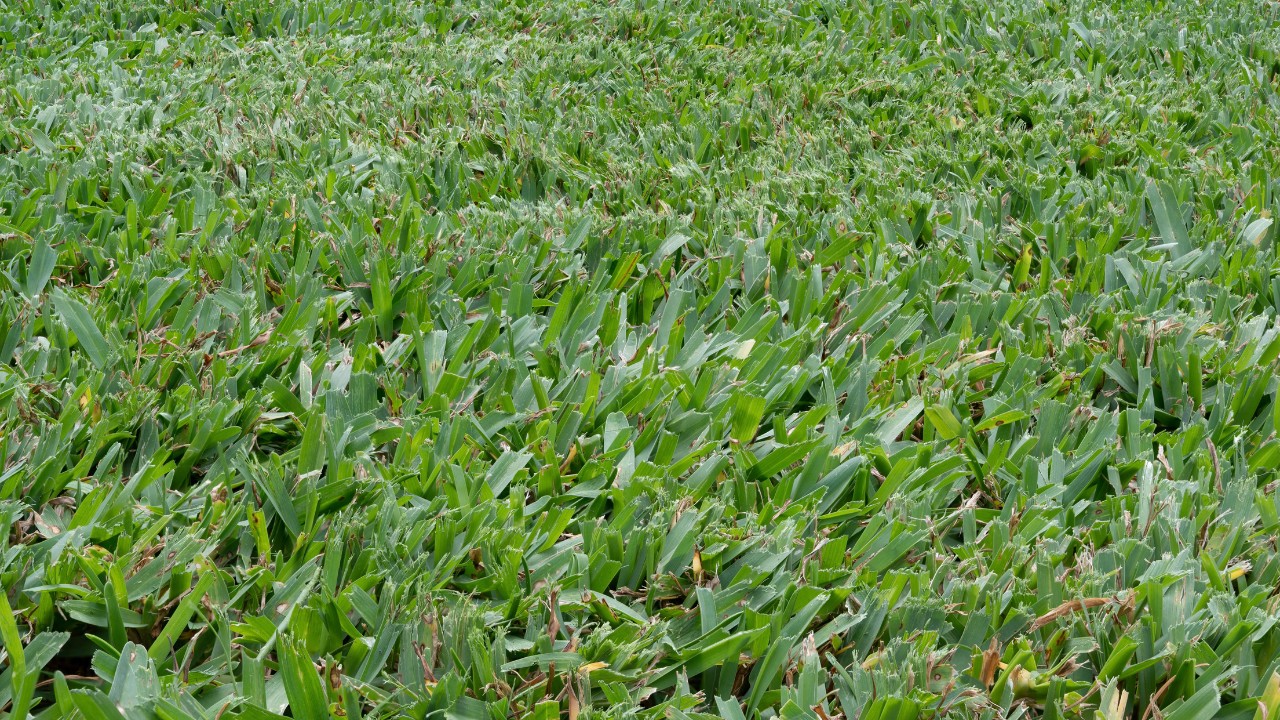
Turf grass isn’t suited to all environments, and in dry areas, you need that regular maintenance routine to keep it at its best. In contrast, native grasses thrive because they are suited to the conditions.
Depending on your climate and where you live, attractive native options could include switchgrass, buffalo grass and little bluestem. They are tolerant of drought and will give you an attractive lawn area in return for little work.
